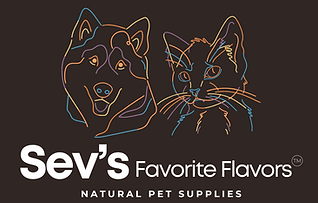The Truth About Proper Dog Socialization: More Than Just Playtime
- Paulien

- Feb 17
- 3 min read
When people hear the word “socialization,” they often think of dogs running around at the dog park, playing with as many other dogs as possible. While playtime can be part of socialization, true socialization is much more than just meeting and playing with other dogs. Proper socialization means teaching your dog to navigate the world confidently and calmly—whether they’re around other animals, people, or even strange objects and noises.
What Is Proper Socialization?
Socialization is the process of exposing your dog to a variety of experiences in a positive way, helping them develop confidence and good behavior. A well-socialized dog isn’t just one that plays well with others—it’s a dog that can remain calm and well-behaved in different environments and situations.
Proper socialization includes:
Learning to ignore distractions and focus on their handler
Being comfortable around other dogs without always needing to interact
Responding appropriately to different types of people, including children and strangers
Handling new environments, sights, and sounds without fear
Being calm around moving objects like bikes, skateboards, and strollers
Why Proper Socialization Matters
Dogs that are not properly socialized may become anxious, fearful, or reactive in unfamiliar situations. This can lead to behavioral issues such as excessive barking, lunging at other dogs or people, or even aggression. On the other hand, dogs that are thoughtfully socialized develop into well-adjusted companions who can handle the unpredictability of everyday life with ease.
How to Socialize Your Dog the Right Way
Quality Over Quantity – Your dog doesn’t need to meet every dog or person they encounter. Instead, focus on controlled, positive experiences where your dog remains relaxed and engaged.
Neutrality is the Goal – Your dog should learn to exist peacefully around other animals and people without becoming overly excited or nervous. This means practicing calm behaviors rather than always encouraging play.
Expose Gradually – Introduce your dog to new experiences at a pace they are comfortable with. This includes different surfaces (like grass, pavement, gravel), sounds (traffic, sirens, fireworks), and environments (parks, city streets, stores).
Use Positive Reinforcement – Reward your dog for calm and confident behavior. Treats, praise, and toys can all help reinforce positive associations with new experiences.
Set Boundaries at Dog Parks – If you choose to take your dog to a dog park, ensure it’s a safe and structured environment. Not every dog enjoys rough play, and forced interactions can create negative experiences. Read our other post about that, here.
Socialization Is Lifelong – Even adult dogs benefit from continued exposure to new situations. Regularly reinforcing calm behavior in different environments keeps them adaptable and confident.
Final Thoughts
Proper socialization isn’t about how many dogs your pup can play with—it’s about teaching them how to exist in the world with confidence and composure. A well-socialized dog is a joy to be around, whether they’re on a walk, at a vet visit, or simply relaxing at home. By focusing on quality experiences and reinforcing calm, positive behavior, you’ll set your dog up for a lifetime of success.
Need help selecting training treats for your dog? Check out our single-ingredient natural treats—perfect for rewarding calm and confident behavior!
Socialization Checklist
Here’s a handy checklist of things to socialize your pup with:
Different surfaces: grass, pavement, gravel, wood floors, tile
Various sounds: traffic, sirens, fireworks, vacuum cleaners
People: children, elderly individuals, people in hats, people with beards
Animals: other dogs, cats, small pets (under controlled conditions)
Moving objects: bicycles, skateboards, wheelchairs, strollers
Different environments: parks, city streets, pet-friendly stores
Handling: grooming, nail trims, vet visits
Weather conditions: rain, wind, snow
Use this list to help your pup gain confidence in new experiences and develop into a well-balanced companion!
.png)



Comments